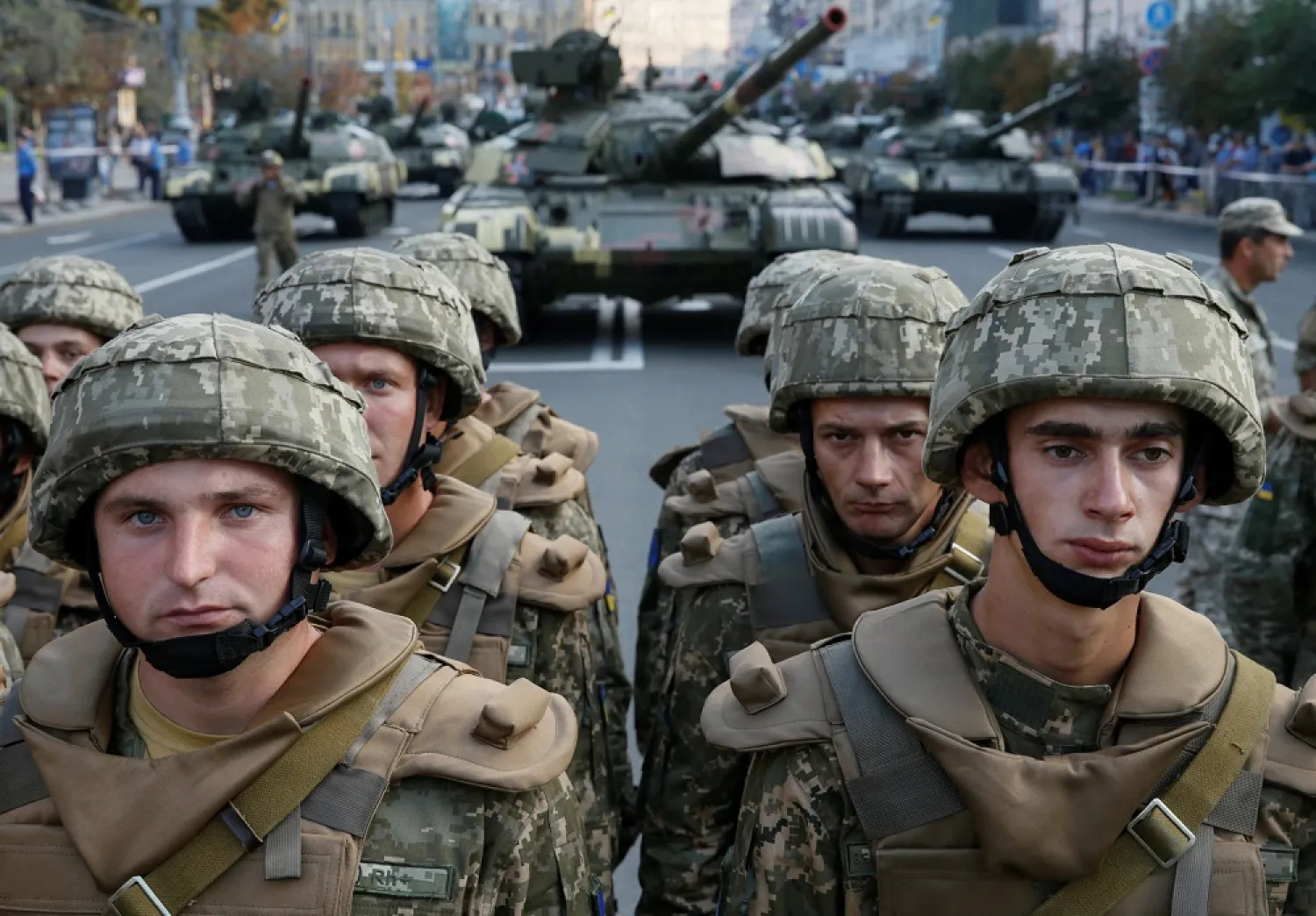Russia slammed on Saturday a US decision to provide lethal weapons to Ukraine, suggesting that Moscow could be forced to respond.
Deputy Foreign Minister Sergei Ryabkov said the US decision will only make the conflict more deadly.
He also said the US can no longer cast itself as a mediator. "It's not a mediator. It's an accomplice in fueling the war," Ryabkov said in a statement.
Supplies of any weapons now encourage those who support the conflict in Ukraine to use the “force scenario,” Russia’s RIA state news agency cited Deputy Foreign Minister Grigory Karasin as saying on Saturday.
Franz Klintsevich, a member of the upper house of the Russian parliament’s security committee, said Kiev would consider arms supplies as support of its actions, Interfax news agency reported.
“Americans, in fact, directly push Ukrainian forces to war,” Klintsevich said.
The Trump administration approved a plan to provide lethal weapons to Ukraine, a long-awaited move that deepens America's involvement in the military conflict and may further strain relations with Russia.
The new arms include American-made Javelin anti-tank missiles, US officials said late Friday.
Ukraine has long sought to boost its defenses against Russian-backed separatists armed with tanks that have rolled through eastern Ukraine during violence that has killed more than 10,000 since 2014. Previously, the US has provided Ukraine with support equipment and training, and has let private companies sell some small arms like rifles.
The move is likely to become another sore point between Washington and Moscow, as President Donald Trump contends with ongoing questions about whether he's too hesitant to confront the Kremlin.
Ukraine accuses Russia of sending the tanks, and the US says Moscow is arming, training and fighting alongside the separatists.
The intensified support for Ukraine's military also comes amid early discussions about sending UN peacekeepers to eastern Ukraine, to improve security conditions not only for Ukrainians but for monitors from the Organization for Security and Cooperation in Europe who are on the ground.
The US and other nations were cautiously optimistic when Russian President Vladimir Putin proposed to send in peacekeepers. But there are major disagreements about how and where the peacekeepers would operate, especially about whether they'd be deployed only on the "line of conflict" between separatists and the government.
The US and Ukraine want peacekeepers deployed throughout the separatist-controlled regions stretching to the Ukraine-Russia border.
By approving a plan to provide lethal weapons to Ukraine, the Trump administration could see it as providing leverage in these negotiations.
While some are skeptical about Putin's proposal, others suggest he may be looking for a way out of the conflict. Alexander Vershbow, former deputy secretary general of NATO and a former ambassador to Moscow, said a UN peacekeeping mission could serve as cover for Russia to withdraw its forces and weapons from eastern Ukraine.
Trump had been considering the plan for some time after the State Department and the Pentagon signed off earlier this year. President Barack Obama also considered sending lethal weapons to Ukraine, but left office without doing so.
The State Department, responsible for overseeing foreign military sales, would not confirm that anti-tank missiles or other lethal weapons would be sent. But in a statement late Friday, State Department spokeswoman Heather Nauert said the US had decided to provide "enhanced defensive capabilities" to help Ukraine build its military long-term, defend its sovereignty and "deter further aggression."
"US assistance is entirely defensive in nature, and as we have always said, Ukraine is a sovereign country and has a right to defend itself," Nauert said.
The White House's National Security Council declined to comment.
In thanking the US for its support, Ukrainian President Petro Poroshenko addressed the concerns over how the weapons would be used.
"American weapons in the hands of Ukrainian soldiers are not for an offensive, but for a decisive rebuff of the aggressor, the protection of Ukrainian soldiers and civilians, as well as for effective self-defense," he wrote on Facebook. "It is also a trans-Atlantic vaccination against the Russian virus of aggression."
The move comes as the United States and European nations struggle to break a long logjam in the Ukraine-Russia conflict that erupted three years ago when fighting broke out between Russian-backed separatists and government troops in the east.
France, Russia and Germany brokered a peace arrangement in 2015 that has lowered violence but not stopped it, and a political settlement outlined in the deal hadn't been fully implemented.
In recent days, Secretary of State Rex Tillerson has warned that violence is up about 60 percent this year. In Europe earlier this month, Tillerson called Russia's involvement the biggest tension point between the former Cold War rivals.
"It stands as the single most difficult obstacle to us re-normalizing the relationship with Russia, which we badly would like to do," Tillerson said.
The United States, under Obama, imposed sanctions on Russia for its invasion and annexation of Crimea. The Trump administration has insisted those sanctions will stay in place until Moscow gives up the Crimean Peninsula.









